外研版(2019)选择性必修一Unit1 Laugh out loud! Starting out 课件(共38张PPT)
文档属性
| 名称 | 外研版(2019)选择性必修一Unit1 Laugh out loud! Starting out 课件(共38张PPT) | 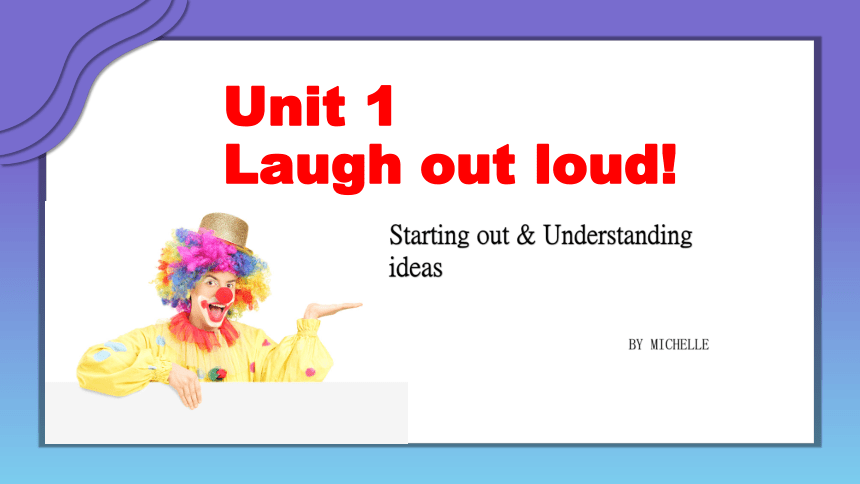 | |
| 格式 | pptx | ||
| 文件大小 | 186.5MB | ||
| 资源类型 | 教案 | ||
| 版本资源 | 外研版(2019) | ||
| 科目 | 英语 | ||
| 更新时间 | 2025-01-10 12:29:19 | ||
图片预览


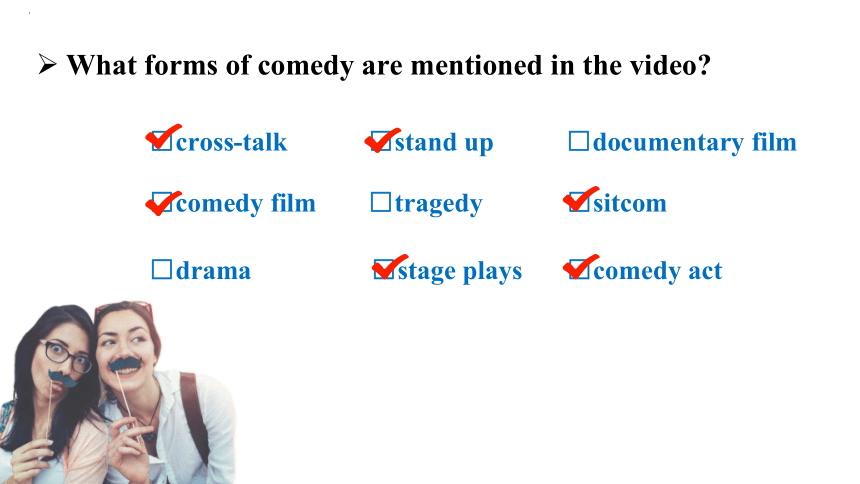

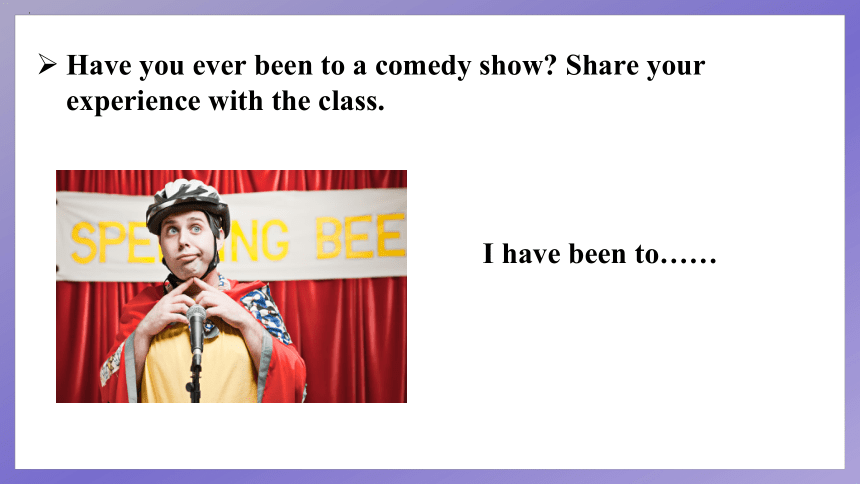
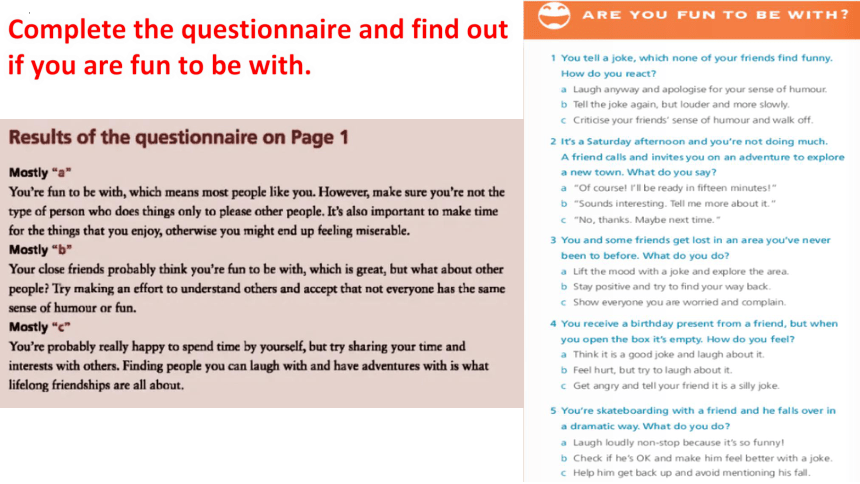
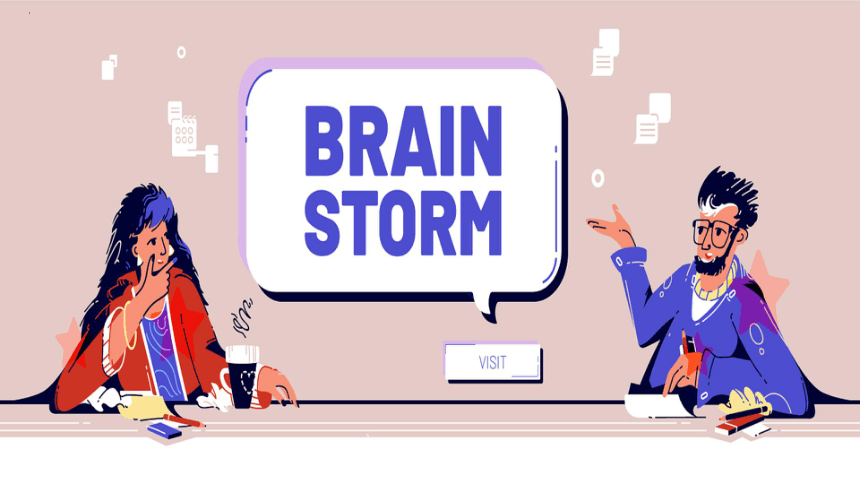
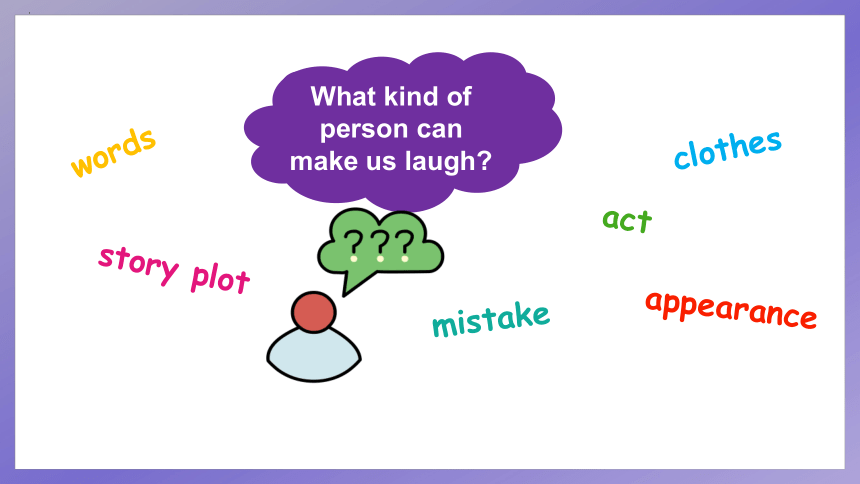
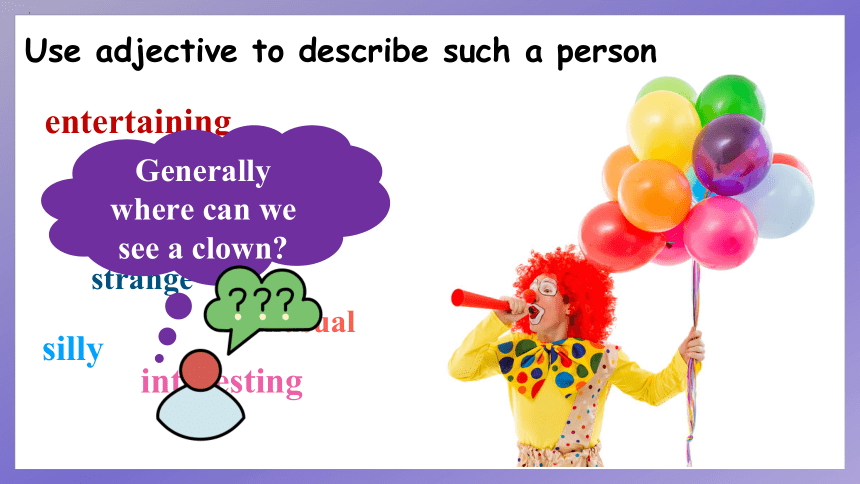
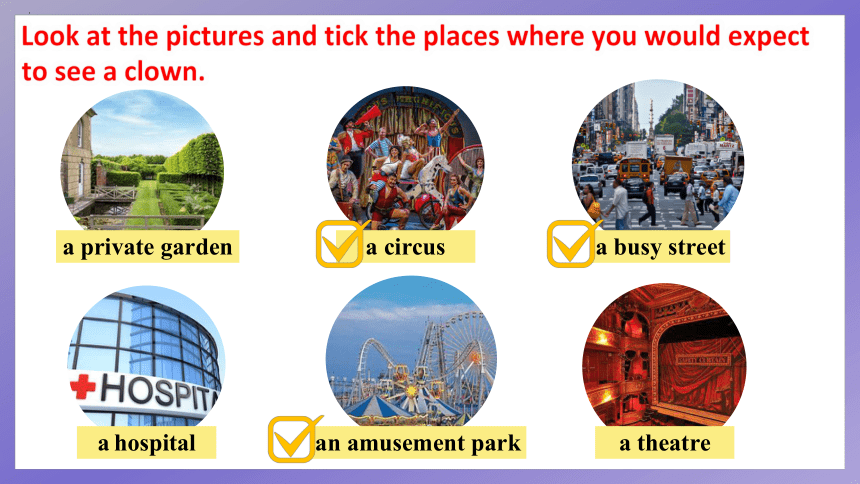
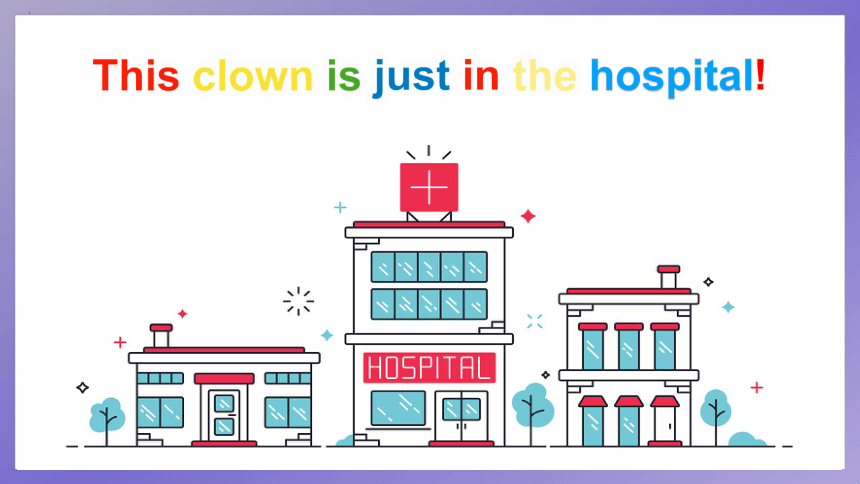
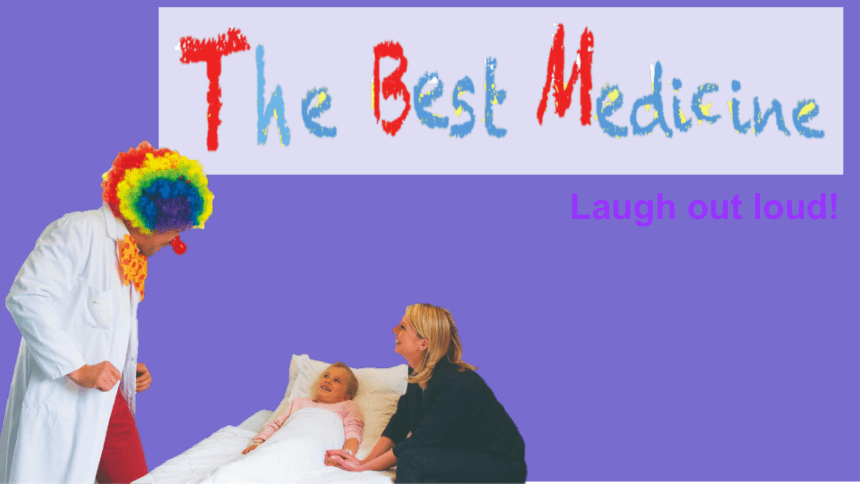
文档简介
(共38张PPT)
Unit 1
Laugh out loud!
BY MICHELLE
Starting out & Understanding ideas
Watch the video and answer the questions.
What forms of comedy are mentioned in the video
What forms of comedy are mentioned in the video
□stage plays
□comedy act
□cross-talk
□stand up
□comedy film
□sitcom
□drama
□tragedy
□documentary film
stage plays
cross-talk
sitcom
comedy act
stand up
comedy film
Have you ever been to a comedy show Share your experience with the class.
I have been to……
Complete the questionnaire and find out if you are fun to be with.
What makes people laugh
words
act
clothes
appearance
story plot
mistake
What kind of person can make us laugh
Use adjective to describe such a person
silly
funny
interesting
amusing
entertaining
strange
colorful
unusual
Generally where can we see a clown
a private garden
a circus
a hospital
an amusement park
a busy street
a theatre
Look at the pictures and tick the places where you would expect to see a clown.
This clown is just in the hospital!
Laugh out loud!
Pre-reading
Make a prediction
Title
What will the text be about
Illustration
Where is the clown
What is the clown doing
How do the kid and woman feel
While-reading
Read the passage quickly and match the main idea with its corresponding paragraph.
Paragraph 1
Paragraph 2
Paragraph 3
Paragraph 4
Paragraph 5
Paragraph 6
The reason why the author chose to be a clown doctor.
Clown doctors make a difference to sick children and their parents.
Clown doctors make a difference to themselves.
The author's daily routine in a hospital.
The role clown doctors play in hospitals and other healthy care facilities.
The author spots a crying girl.
While-reading
Match the questions to the paragraphs and find out the answers.
Paragraph 1
He wears curly rainbow wig, a red nose, a white coat and his name badge. The environment is boring and stressful.
Paragraph 2
A small girl whose ankle is injured is in need of the clown doctors because she spends time crying in pain.
Paragraph 3
Scientific studies show that laughter produces chemicals to make people feel better, which means clown doctors can be helpful. We are specially trained clowns who work as part of a programme known as “hospital clowning”. I chose this career because of my experience of going to hospital when I was a kid. Although the doctors and nurse did a great job, hospital weren’t really designed for children. I spent much of the time when I was there feeling frightened and more than a little bored! Being a clown doctor means I can help people by entertaining them.
A clown doctor is trained as part of a programme known as "hospital clowning". He chose this career becuse of his frightening and boring experience of going to hospital when he was a kid.
Paragraph 4
Visiting hospitals and other health care facilities, we clown
doctors work together with medical professionals. On a
typical day, we spend our time cheering up patients, their
families, and more often than not, the hospital staff, too! We
do this by doing magic tricks, singing songs, telling stories
and, of course, telling silly jokes. Some children, though,
don‘t feel like laughing, especially if they're in pain.
We have to be very sensitive and work closely with the
doctors and nurses, who keep us updated on each patient.
A clown doctor work with medical professionals, cheering up patients, their families, and the hospital staff.
Paragraph 5
And my magic medicine does indeed seem to do
the trick. While the doctor concentrates on
examining Lara's ankle, I get her attention by doing
a magic trick. Although she is clearly still in some
pain, her scared and anxious look has been replaced-
first by a small smile, and then by loud laughter as
I “magically" produce her sock from out of my
pocket. Seeing their daughter so much happier
has in turn made Lara's parents more relaxed.
He gets the patient’s attention by doing a magic trick — he produces the patient’s sock from out of his pocket.
Paragraph 6
He is still wearing a big smile as he remembers all the fun and laughter of the day, because he believes that “laughter is the best medicine”.
What is the text about
It’s about what a clown doctor does on a typical day.
What is probably the genre of the passage
It is a narrative.
What is the theme of this passage
People can be better, happier, more relaxed by laughter.
How does narrative develop
描述衣着和环境
描述状态和故事背景
阐述故事背后的原因→推动故事发展
描述动作
描述动作如何具体实施
阐述心理活动→升华故事内涵
How does narrative develop
破题
发展
结局
借助因果关系来推动情节
Organise information from the passage and complete the job advertisement.
health care facilities
nervous, pain or bored
the hospital staff
magic tricks
a friendlier place to visit
Similarities
ClOwn doctors
Medical doctors
train as actors
need medical training
wear white coats
Complete the diagram comparing clown doctors and medical doctors.
work to cheer up sick children, their families and the hospital staff
do magic tricks, sing songs, and tell jokes
use toys and balloons
...
treat sick people
provide medical service
use medical equipment
...
work for patients
...
Think Share
Post-reading
How important do you think clown doctors are
What is your understanding of the saying “laughter is the best medicine” Do you agree with it Why
Would you like to work as a clown doctor Why or why not
How does the diagram in Activity 5 help you to better understand the passage
Summary
Clown doctors do make a difference.
As I approach the hospital wearing my white coat, I look just like any other doctor. That is until l put on my curly
rainbow wig, big red nose, and add my name badge "Doctor Larry Laugh-Out-Loud". I walk through the doors
into the waiting area, where there's a familiar atmosphere of boredom and tension. People sit uncomfortably on
plastic chairs, looking through old magazines, all of which have been read hundreds of times previously. Anxious
parents do what they can to comfort nervous and crying children.
动词的现在分词作方式状语
until引导表语从句,“直到...”,主句中的谓语动词 is为延续性动词,所以主句用肯定句,不能否定句。
穿过一道道们
动名词表示功能,用途
非限定性定语从句,对先行词the waiting area
进行补充说明
副词修饰动词
动词的现在分词作方式状语
非限定性定语从句,对先行词old magazines进行补充说明,被动语态
宾语从句,what=the thing that
to comfort动词不定式表示目的
Language points
Language points
which引导的非限定性定语从句,指代整个主句或主句的一部分,前面用逗号与主句隔开。
翻译练习
1. 这些树,是我三年前种的,还没有结果子。
These apple trees, __________________________, have not borne any fruit.
2. 在那么多人面前他有点紧张,这是可以理解的。
In the presence of so many people he was little tense, _______________________.
3. 他可能得了急性盲肠炎,如果是这样,他就得动手术。
He may have acute appendicitis, _____________ he will have to be operated on.
4. 他们很感激Tom,没有他的支持他们是不会成功的。
They thanked Tom, _______________________ they would not have succeeded.
which I planted three years ago
which was understandable
in which case
without whose support
Language points
动词的现在分词作状语,表示原因, 方式,时间,条件,结果等,与逻辑主语之间是主动关系,表示正在发生的动作。
单句语法填空
1. There was a terrible noise ___________(follow) the sudden burst of light.
2. European football is played in more than 80 countries, ___________(make) it the most popular sport in the world.
3. ___________(see) from the top of the hill, we can find that the city looks more beautiful.
4. Weather ___________(permit), we'll go to the Great wall.
5. ___________(walk) in the street, I saw him.
6. ___________(judge) from his worried face, we knew that he must have had some trouble.
7. Generally speaking, there are several reasons ___________(account) for this phenomenon.
8. The argument is very ___________(convince).
following
making
Seeing
permittingg
Judging
Walking
accounting
convincing
Language points
In the middle of this particular scene I spot a small girl whose ankle is twice its normal size. I speak with the on-
duty nurse, who tells me that Lara's parents rushed her to the hospital after she fell off her bicycle.
Since getting here, Lara has spent her time crying in pain. Although it's the doctors and nurses who will treat her
injury, it's my job to make her feel better.
定语从句,先行词为a small girl, 关系词和ankle之间为所属关系,关系词为whose
倍数的表达方式之一:倍数+the size / length / width / height of…
从...掉落
将..匆匆送往...
who引导的非限定性定语从句
动词的现在分词作状语,表示时间
强调句,也称“分裂句”,用“it's...that/who”把一个句子分裂开来,在语义上表示强调。如果把“it's...that/who”去掉,仍然是一个结构完整的句子。强调句可以对主语,宾语和状语进行强调。
Language points
★基本形式:It is/ was + 被强调部分(通常是主语、宾语或状语)+ that/ who(当强调主语且主语指人)+ 其他部分。
如: He met Li Ping yeaterday. (强调yesterday) It was yesterday that he met Li Ping.
★一般疑问句的强调句型, 把is/ was移到it前面。
如:Was it yesterday that he met Li Ping
★特殊疑问句的强调句型
被强调部分(通常是疑问代词或疑问副词)+ is/ was + it + that/ who + 其他部分?
如: Was it in 1997 that you were born (就in 1997提问) When was it that you were born
★ not … until …句型的强调句
It is/ was not until + 被强调部分 + that + 其他部分
如:He didn't go to bed until he finished his work.
It was not until he finished his work that he went to bed.
Language points
根据划线部分,把下列句子变成强调句。
1. We completed the task with their help.
2. My cousin is very interested in painting.
3. The clown doctors work together with medical professionals.
4. I chose this career becuse of my experience of going to hospital when I was a kid.
5. The mormans ruled England after the well-known Battle of Hastings in the 11th cnetury.
It was with their help that we completed the task.
It is in painting that my cousin is verested.
It was the clown doctors who/that work together with medical professionals.
It was because of my experience of going to hospital when I was a kid that I chose this career.
It wasEngland that the Normans ruled after the well-known Battle of Hastings in the 11th century.
Language points
Scientific studies show that laughter produces chemicals to make people feel better, which means clown doctors
can be helpful. We are specially trained clowns who work as part of a programme known as "hospital clowning". I
chose this career becuse of my experience of going to hospital when I was a kid. Although the doctors and nurses
did a great job, hospitals weren't really designed for children. I spent much of the time when I was there feeling
frightened and more than a lirtle bored! Being a clown doctor means I can help people by entertaining them.
研究工作,常用复数形式
化学物质,常用复数形式
非限定性定语从句,指代这个主句,定语从句的谓语动词用单数形式
副词修饰动词,trained 过去分词表示被动
known过去分词表示被动
although引导让步状语从句,表示:尽管...
be designed for sb专门为某人设计
关系副词when引导的定语从句
动名词作主语,谓语动词为单数形式
Language points
Visiting hospirals and other health care facilities, we clown doctors work together with medical professionals. On a
typical day, we spend our time cheering up patients, their families, and more often than not, the hospital staff, too!
We do this by doing magic tricks, singing songs, telling stories and, of coursce, telling silly jokes. Some children,
though, don't feel like laughing, especially if they're in pain. We have to be very sensitive and work closely with the
doctors and nurses, who keep us updated on each patient.
动词的现在分词作方式状语,表示主动及正在发生
在特定的某一天,介词用on
spend ... doing...花时间做某事
通过做某件事
副词especially 修饰整个句子
keep sb updated 使某人获知最新消息
通常情况下
Language points
And my magic medicine does indeed seem to do the trick. While the doctor concentrates on examining Lara's ankle,
I get her attention by doing a magic trick. Although she is clearly still in some pain, her scared and anxious look
has been replaced—first by a small smile, and then by loud laughter as I "magically" produce her sock from out of
my pocket. Seeing their daughter so much happier has in turn made Lara's parents more relaxed.
seem to do sth 仿佛会发生某事
concentrate on doing sth集中精力做某事
scared害怕的,描述人的感受,表情;scary可怕的,描述事物的特征
现在完成时态的被动语态,表示:被取代
动名词作主语,谓语动词为单数形式
in turn :依次,轮流,转而,接下来
from out of...从...之中
Review language points.
Surf the Internet to get more information about the clown doctors
THANKS FOR WATCHING
Unit 1
Laugh out loud!
BY MICHELLE
Starting out & Understanding ideas
Watch the video and answer the questions.
What forms of comedy are mentioned in the video
What forms of comedy are mentioned in the video
□stage plays
□comedy act
□cross-talk
□stand up
□comedy film
□sitcom
□drama
□tragedy
□documentary film
stage plays
cross-talk
sitcom
comedy act
stand up
comedy film
Have you ever been to a comedy show Share your experience with the class.
I have been to……
Complete the questionnaire and find out if you are fun to be with.
What makes people laugh
words
act
clothes
appearance
story plot
mistake
What kind of person can make us laugh
Use adjective to describe such a person
silly
funny
interesting
amusing
entertaining
strange
colorful
unusual
Generally where can we see a clown
a private garden
a circus
a hospital
an amusement park
a busy street
a theatre
Look at the pictures and tick the places where you would expect to see a clown.
This clown is just in the hospital!
Laugh out loud!
Pre-reading
Make a prediction
Title
What will the text be about
Illustration
Where is the clown
What is the clown doing
How do the kid and woman feel
While-reading
Read the passage quickly and match the main idea with its corresponding paragraph.
Paragraph 1
Paragraph 2
Paragraph 3
Paragraph 4
Paragraph 5
Paragraph 6
The reason why the author chose to be a clown doctor.
Clown doctors make a difference to sick children and their parents.
Clown doctors make a difference to themselves.
The author's daily routine in a hospital.
The role clown doctors play in hospitals and other healthy care facilities.
The author spots a crying girl.
While-reading
Match the questions to the paragraphs and find out the answers.
Paragraph 1
He wears curly rainbow wig, a red nose, a white coat and his name badge. The environment is boring and stressful.
Paragraph 2
A small girl whose ankle is injured is in need of the clown doctors because she spends time crying in pain.
Paragraph 3
Scientific studies show that laughter produces chemicals to make people feel better, which means clown doctors can be helpful. We are specially trained clowns who work as part of a programme known as “hospital clowning”. I chose this career because of my experience of going to hospital when I was a kid. Although the doctors and nurse did a great job, hospital weren’t really designed for children. I spent much of the time when I was there feeling frightened and more than a little bored! Being a clown doctor means I can help people by entertaining them.
A clown doctor is trained as part of a programme known as "hospital clowning". He chose this career becuse of his frightening and boring experience of going to hospital when he was a kid.
Paragraph 4
Visiting hospitals and other health care facilities, we clown
doctors work together with medical professionals. On a
typical day, we spend our time cheering up patients, their
families, and more often than not, the hospital staff, too! We
do this by doing magic tricks, singing songs, telling stories
and, of course, telling silly jokes. Some children, though,
don‘t feel like laughing, especially if they're in pain.
We have to be very sensitive and work closely with the
doctors and nurses, who keep us updated on each patient.
A clown doctor work with medical professionals, cheering up patients, their families, and the hospital staff.
Paragraph 5
And my magic medicine does indeed seem to do
the trick. While the doctor concentrates on
examining Lara's ankle, I get her attention by doing
a magic trick. Although she is clearly still in some
pain, her scared and anxious look has been replaced-
first by a small smile, and then by loud laughter as
I “magically" produce her sock from out of my
pocket. Seeing their daughter so much happier
has in turn made Lara's parents more relaxed.
He gets the patient’s attention by doing a magic trick — he produces the patient’s sock from out of his pocket.
Paragraph 6
He is still wearing a big smile as he remembers all the fun and laughter of the day, because he believes that “laughter is the best medicine”.
What is the text about
It’s about what a clown doctor does on a typical day.
What is probably the genre of the passage
It is a narrative.
What is the theme of this passage
People can be better, happier, more relaxed by laughter.
How does narrative develop
描述衣着和环境
描述状态和故事背景
阐述故事背后的原因→推动故事发展
描述动作
描述动作如何具体实施
阐述心理活动→升华故事内涵
How does narrative develop
破题
发展
结局
借助因果关系来推动情节
Organise information from the passage and complete the job advertisement.
health care facilities
nervous, pain or bored
the hospital staff
magic tricks
a friendlier place to visit
Similarities
ClOwn doctors
Medical doctors
train as actors
need medical training
wear white coats
Complete the diagram comparing clown doctors and medical doctors.
work to cheer up sick children, their families and the hospital staff
do magic tricks, sing songs, and tell jokes
use toys and balloons
...
treat sick people
provide medical service
use medical equipment
...
work for patients
...
Think Share
Post-reading
How important do you think clown doctors are
What is your understanding of the saying “laughter is the best medicine” Do you agree with it Why
Would you like to work as a clown doctor Why or why not
How does the diagram in Activity 5 help you to better understand the passage
Summary
Clown doctors do make a difference.
As I approach the hospital wearing my white coat, I look just like any other doctor. That is until l put on my curly
rainbow wig, big red nose, and add my name badge "Doctor Larry Laugh-Out-Loud". I walk through the doors
into the waiting area, where there's a familiar atmosphere of boredom and tension. People sit uncomfortably on
plastic chairs, looking through old magazines, all of which have been read hundreds of times previously. Anxious
parents do what they can to comfort nervous and crying children.
动词的现在分词作方式状语
until引导表语从句,“直到...”,主句中的谓语动词 is为延续性动词,所以主句用肯定句,不能否定句。
穿过一道道们
动名词表示功能,用途
非限定性定语从句,对先行词the waiting area
进行补充说明
副词修饰动词
动词的现在分词作方式状语
非限定性定语从句,对先行词old magazines进行补充说明,被动语态
宾语从句,what=the thing that
to comfort动词不定式表示目的
Language points
Language points
which引导的非限定性定语从句,指代整个主句或主句的一部分,前面用逗号与主句隔开。
翻译练习
1. 这些树,是我三年前种的,还没有结果子。
These apple trees, __________________________, have not borne any fruit.
2. 在那么多人面前他有点紧张,这是可以理解的。
In the presence of so many people he was little tense, _______________________.
3. 他可能得了急性盲肠炎,如果是这样,他就得动手术。
He may have acute appendicitis, _____________ he will have to be operated on.
4. 他们很感激Tom,没有他的支持他们是不会成功的。
They thanked Tom, _______________________ they would not have succeeded.
which I planted three years ago
which was understandable
in which case
without whose support
Language points
动词的现在分词作状语,表示原因, 方式,时间,条件,结果等,与逻辑主语之间是主动关系,表示正在发生的动作。
单句语法填空
1. There was a terrible noise ___________(follow) the sudden burst of light.
2. European football is played in more than 80 countries, ___________(make) it the most popular sport in the world.
3. ___________(see) from the top of the hill, we can find that the city looks more beautiful.
4. Weather ___________(permit), we'll go to the Great wall.
5. ___________(walk) in the street, I saw him.
6. ___________(judge) from his worried face, we knew that he must have had some trouble.
7. Generally speaking, there are several reasons ___________(account) for this phenomenon.
8. The argument is very ___________(convince).
following
making
Seeing
permittingg
Judging
Walking
accounting
convincing
Language points
In the middle of this particular scene I spot a small girl whose ankle is twice its normal size. I speak with the on-
duty nurse, who tells me that Lara's parents rushed her to the hospital after she fell off her bicycle.
Since getting here, Lara has spent her time crying in pain. Although it's the doctors and nurses who will treat her
injury, it's my job to make her feel better.
定语从句,先行词为a small girl, 关系词和ankle之间为所属关系,关系词为whose
倍数的表达方式之一:倍数+the size / length / width / height of…
从...掉落
将..匆匆送往...
who引导的非限定性定语从句
动词的现在分词作状语,表示时间
强调句,也称“分裂句”,用“it's...that/who”把一个句子分裂开来,在语义上表示强调。如果把“it's...that/who”去掉,仍然是一个结构完整的句子。强调句可以对主语,宾语和状语进行强调。
Language points
★基本形式:It is/ was + 被强调部分(通常是主语、宾语或状语)+ that/ who(当强调主语且主语指人)+ 其他部分。
如: He met Li Ping yeaterday. (强调yesterday) It was yesterday that he met Li Ping.
★一般疑问句的强调句型, 把is/ was移到it前面。
如:Was it yesterday that he met Li Ping
★特殊疑问句的强调句型
被强调部分(通常是疑问代词或疑问副词)+ is/ was + it + that/ who + 其他部分?
如: Was it in 1997 that you were born (就in 1997提问) When was it that you were born
★ not … until …句型的强调句
It is/ was not until + 被强调部分 + that + 其他部分
如:He didn't go to bed until he finished his work.
It was not until he finished his work that he went to bed.
Language points
根据划线部分,把下列句子变成强调句。
1. We completed the task with their help.
2. My cousin is very interested in painting.
3. The clown doctors work together with medical professionals.
4. I chose this career becuse of my experience of going to hospital when I was a kid.
5. The mormans ruled England after the well-known Battle of Hastings in the 11th cnetury.
It was with their help that we completed the task.
It is in painting that my cousin is verested.
It was the clown doctors who/that work together with medical professionals.
It was because of my experience of going to hospital when I was a kid that I chose this career.
It wasEngland that the Normans ruled after the well-known Battle of Hastings in the 11th century.
Language points
Scientific studies show that laughter produces chemicals to make people feel better, which means clown doctors
can be helpful. We are specially trained clowns who work as part of a programme known as "hospital clowning". I
chose this career becuse of my experience of going to hospital when I was a kid. Although the doctors and nurses
did a great job, hospitals weren't really designed for children. I spent much of the time when I was there feeling
frightened and more than a lirtle bored! Being a clown doctor means I can help people by entertaining them.
研究工作,常用复数形式
化学物质,常用复数形式
非限定性定语从句,指代这个主句,定语从句的谓语动词用单数形式
副词修饰动词,trained 过去分词表示被动
known过去分词表示被动
although引导让步状语从句,表示:尽管...
be designed for sb专门为某人设计
关系副词when引导的定语从句
动名词作主语,谓语动词为单数形式
Language points
Visiting hospirals and other health care facilities, we clown doctors work together with medical professionals. On a
typical day, we spend our time cheering up patients, their families, and more often than not, the hospital staff, too!
We do this by doing magic tricks, singing songs, telling stories and, of coursce, telling silly jokes. Some children,
though, don't feel like laughing, especially if they're in pain. We have to be very sensitive and work closely with the
doctors and nurses, who keep us updated on each patient.
动词的现在分词作方式状语,表示主动及正在发生
在特定的某一天,介词用on
spend ... doing...花时间做某事
通过做某件事
副词especially 修饰整个句子
keep sb updated 使某人获知最新消息
通常情况下
Language points
And my magic medicine does indeed seem to do the trick. While the doctor concentrates on examining Lara's ankle,
I get her attention by doing a magic trick. Although she is clearly still in some pain, her scared and anxious look
has been replaced—first by a small smile, and then by loud laughter as I "magically" produce her sock from out of
my pocket. Seeing their daughter so much happier has in turn made Lara's parents more relaxed.
seem to do sth 仿佛会发生某事
concentrate on doing sth集中精力做某事
scared害怕的,描述人的感受,表情;scary可怕的,描述事物的特征
现在完成时态的被动语态,表示:被取代
动名词作主语,谓语动词为单数形式
in turn :依次,轮流,转而,接下来
from out of...从...之中
Review language points.
Surf the Internet to get more information about the clown doctors
THANKS FOR WATCHING
